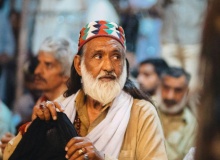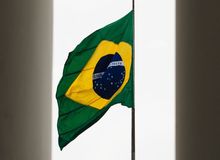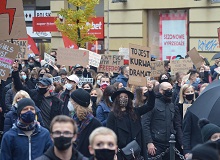

Cropped.jpg)
The dismissal of influential pastor Daniel Alm for abuse of power in his relationship with two female employees has ended up in the courts, where he has lost. A comment from Sweden.

TWR MOTION is bringing God’s Word to an oral culture through stories.

The Lausanne 4 congress deploys the term ‘polycentric Christianity’ to describe the shift from being solely a ‘EuroAmerican religion’ to a global one.

Why do people assume that the freedom of speech and of religion will persist when those asserting their power are committed to a different morality?
.jpg)
A survey finds that the image of Swiss evangelical free churches has improved, specially among young people aged 18 to 39.

It is critical that we keep clear the ultimate purpose of Scripture, to reveal the living God, his heart, his plan, his Son.
Three experts react to a widely distributed open letter calling to “immediately pause for at least 6 months the training of Artificial Intelligence systems” such as the popular GPT-4.

Well-known actress Ana Obregón resorts to surrogacy at 68 and sparks an intense political and media debate.

A pastor and theology student analyses in a research paper the health of Spanish evangelical churches and their leadership regarding spiritual abuse.

The country faces new elections amid increasing polarisation. "The dispute over the evangelical vote has become very important", say analysts.

Only 38% say they talk about their beliefs with others. 68% of French think religion can help to pass on positive values to young people.

Diversity is something believers can affirm within the boundaries of God’s purposes.

The Bible has to be in charge of the message, its main idea, its flow of thought, its relevance, its goals.

A ruling of the Constitutional Court says the 1993 law was unconstitutional. Protests show the social divide in the traditionally Catholic country.

Death for Ernest Hemingway was a release from the role that life seemed to have assigned to him.

Radio and digital media platforms are particularly effective tools to reach the Amazigh community and to encourage the noteworthy Christian minority of local believers in their language.

All his contradictions are no more than the expression of a philosophy centred in freedom of choice – and choices may vary according to circumstances or historical moments.

A Pew Research Center survey shows that “people in emerging economies tend to be more religious and to say that belief in God is necessary to be moral”.

In the Dominican Republic, 200 evangelical leaders call “the business and the political sectors to put down corruption and focus on the reintegration of ethics”.

The proposal of two French doctors to use Africa to test coronavirus vaccines has sparked controversy. “It is not compatible with the biblical criteria of human dignity”, French evangelicals say.

Suddenly we have all realised our common vulnerability. Never in human history has our common fate been shown to be so interlinked.

The Presidents of Paraguay, El Salvador and Guatemala call believers to ask for God’s protection. Christians react to mockery on social media: “We are not ashamed of saying that our trust is in God”.

Prayer and pastoral care online, workshops, Instagram humor, are some of the responses to the first days of confinement.

Spanish psychiatrist and author, Pablo Martínez, analyses how individualism, existential emptiness and intolerance to suffering, have become some of the main charasteristics of our society.

The Education Minister creates a socio-political storm by saying that “children do not belong to their parents”. Three evangelical organisations join the debate about the LGBT workshops in state schools.

Las opiniones vertidas por nuestros colaboradores se realizan a nivel personal, pudiendo coincidir o no con la postura de la dirección de Protestante Digital.